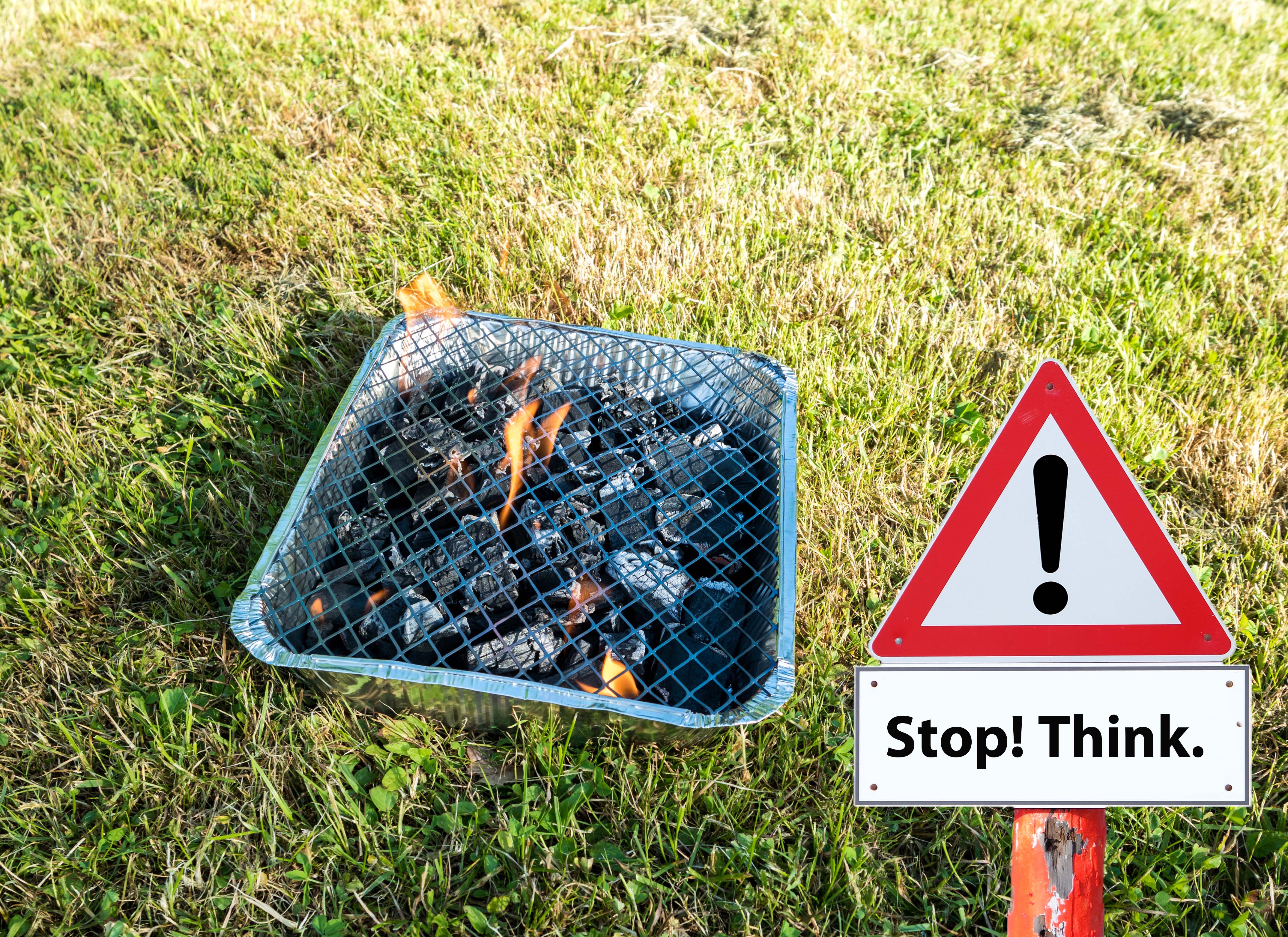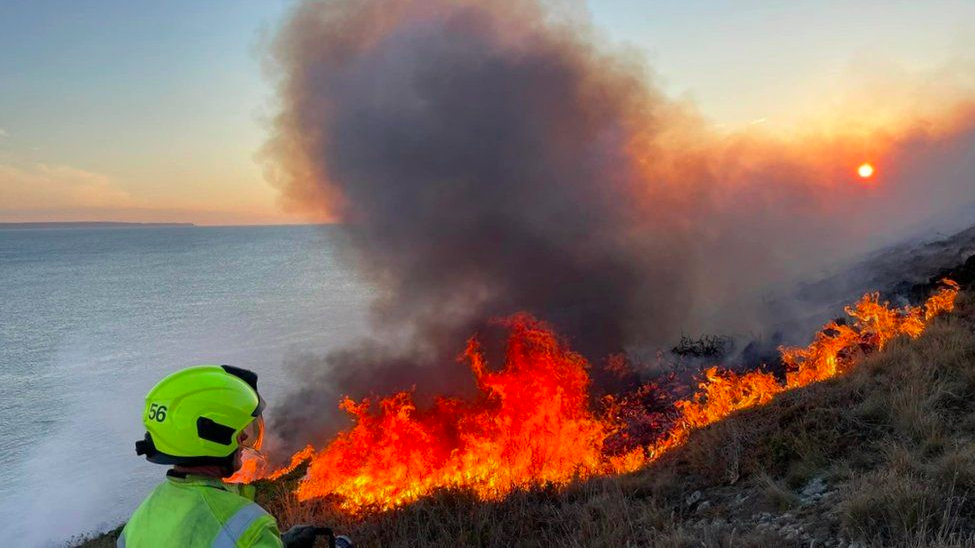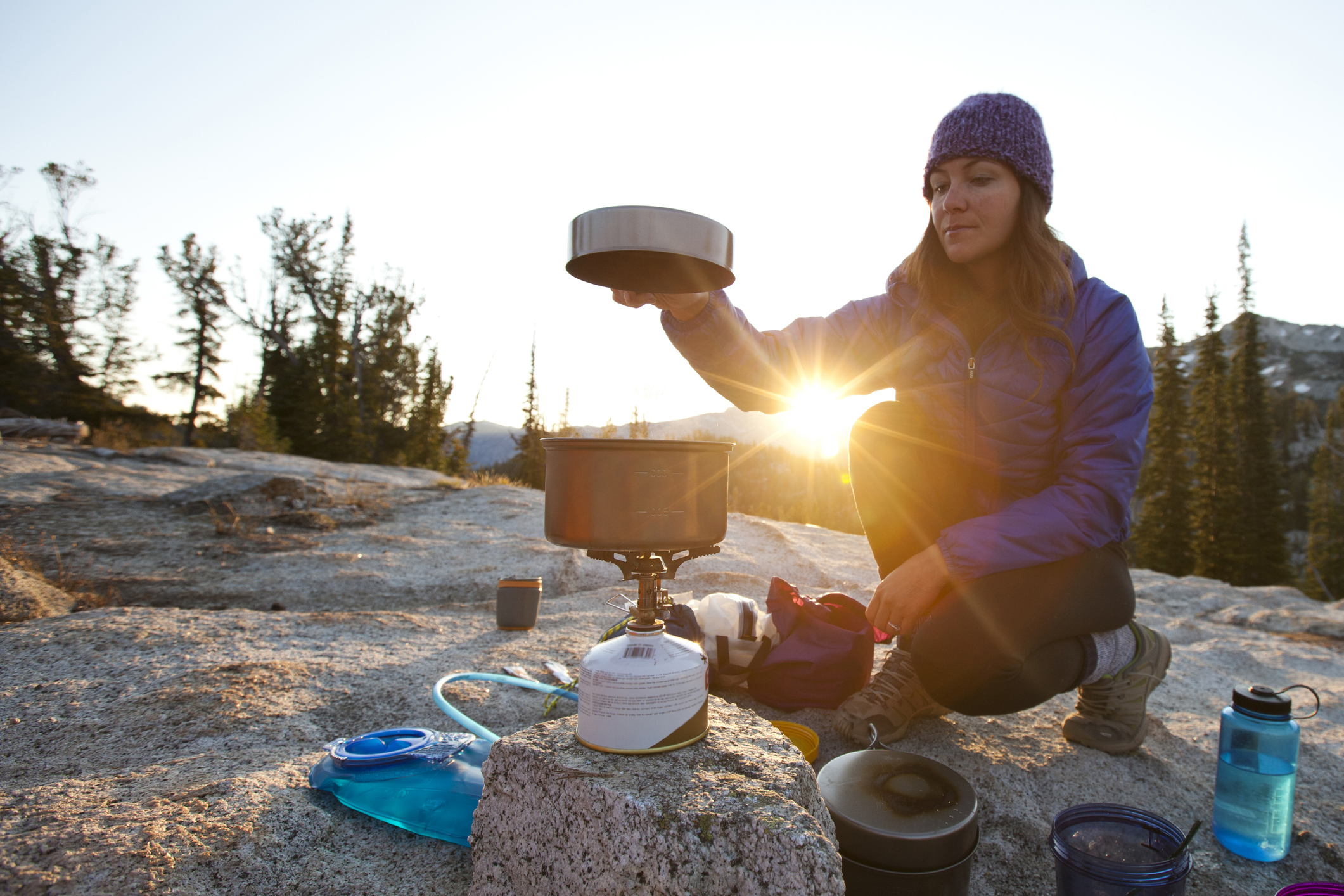

A massive wild fire that ripped across the picturesque North Devon headland of Baggy Point last week, incinerating over 20 acres of fragile coastal flora that’s home to countless species of birds and pollinating insects, was caused by a disposable barbecue, fire service investigators revealed yesterday – as reported on the BBC.
In the wake of various destructive fires during this year’s unusually dry and long summer season, and several horrendous accidents on beaches also caused by hot charcoal beads left behind by users of disposable barbecues, calls for cheap, single-use outdoor cooking devices to be banned have gained traction, led by fire chiefs.

Better Barbecues
But cooking outside is one of the joys of summer and early autumn, and there are plenty of safe ways to do it if you have the right gear and pause to think before you spark up and get your apron on.
While the vast majority of wildfires are, of course, started by accident, that doesn’t help repair the damage to often-delicate landscapes that they cause, let alone mitigate the serious threat to homes, habitat and life they present. The main problem with disposable barbecues is the fact that they’re actually very hard to dispose of safely and responsibly. The charcoal, while sometimes taking a frustrating amount of time to ignite, will remain red hot for absolutely ages, long after you have finished cooking. Users then struggle to get rid of them, and end up simply leaving the hot tray of coals lying around, or burying them on the beach or on hillsides, which sometimes serves to insulate the heat and keep them actively combustible for longer.
There are a multitude of excellent alternatives to disposable barbecues out there for the budding al fresco chef, including portable barbecues, many of which are powered by gas or electricity and don’t rely on the charcoal or pellets that are so problematic to dispose of and potentially dangerous.
The Weber Traveler gas barbecue is a prime example of a fantastic foldable barbecue that offers a large cooking space but folds down like a deckchair to become easily transportable.
Another excellent option for cooking up a storm under open skies is the Campingaz Party Grill 400, which enables you to grill, griddle and fry food in various outdoor settings.
Sign up to the T3 newsletter for smarter living straight to your inbox
Get all the latest news, reviews, deals and buying guides on gorgeous tech, home and active products from the T3 experts

Cook smart on a camping stove
One potential danger posed by disposable barbecues is dry grass igniting around the fairly flimsy cooking apparatus because of the huge amount of heat generated by the charcoal. If you use a well-designed reusable camping stove, you can usually avoid this, and cooking atop a good camping table will also reduce this risk. (Don’t place those pesky disposable barbecues on your camping table, though, as they will likely destroy it!)
Well known to multiday hikers, who love to obsess about reducing weight and bulk, lightweight camping stoves can be a brilliant option for more casual picnickers too, especially if you’re simply looking to boil water for a refreshing brew to go with your sandwich. The Campingaz Twister Plus PZ is an especially brilliant little stove that literally fits in the palm of your hand, or the pocket of your backpack, and Jetboil and Primus also make sensational stoves for heating H2O in a hurry.
And there’s also a massive range of cooking pots and utensils that accompany these smart stoves, which make outdoor chefing easy, enjoyable and much safer for the environment you are out enjoying.
Another outdoor cooking option is to use one of the stoves that burn naturally occurring fuel like twigs and pine cones, such as the clever BioLite CampStove 2+. These stoves are particularly good in autumn, when bio fuel is plentiful, but they do result in hot embers that need to be safely doused and disposed of, so please bear this in mind.
Remember, too, that in times of extreme weather conditions such as prolonged drought and soaring heat, all naked flames can sometimes be banned. Keep an ear and eye out for such alerts in the area you’re exploring, and when they’re issued you should avoid even using gas stoves.

Author of Caving, Canyoning, Coasteering…, a recently released book about all kinds of outdoor adventures around Britain, Pat Kinsella has been writing about outdoor pursuits and adventure sports for two decades. In pursuit of stories he’s canoed Canada’s Yukon River, climbed Mont Blanc and Kilimanjaro, skied and mountain biked across the Norwegian Alps, run ultras across the roof of Mauritius and through the hills of the Himalayas, and set short-lived speed records for trail-running Australia’s highest peaks and New Zealand’s nine Great Walks. A former editor of several Australian magazines he’s a longtime contributor to publications including Sidetracked, Outdoor, National Geographic Traveller, Trail Running, The Great Outdoors, Outdoor Fitness and Adventure Travel, and a regular writer for Lonely Planet (for whom he compiled, edited and co-wrote the Atlas of Adventure, a guide to outdoor pursuits around the globe). He’s authored guides to exploring the coastline and countryside of Devon and Dorset, and recently wrote a book about pub walks. Follow Pat's adventures on Strava and instagram.
-
 3 overrated shoulder exercises, according to a fitness expert (and what to do instead)
3 overrated shoulder exercises, according to a fitness expert (and what to do instead)Sculpt 3D shoulders whilst minimising injury with these three alternative exercises
By Bryony Firth-Bernard Published
-
 Polar’s new subscription feature lands in the shadow of Garmin’s Connect+ rollout
Polar’s new subscription feature lands in the shadow of Garmin’s Connect+ rolloutPR genius or timing disaster? Polar’s new Fitness Programme adds adaptive training to its ecosystem
By Matt Kollat Published